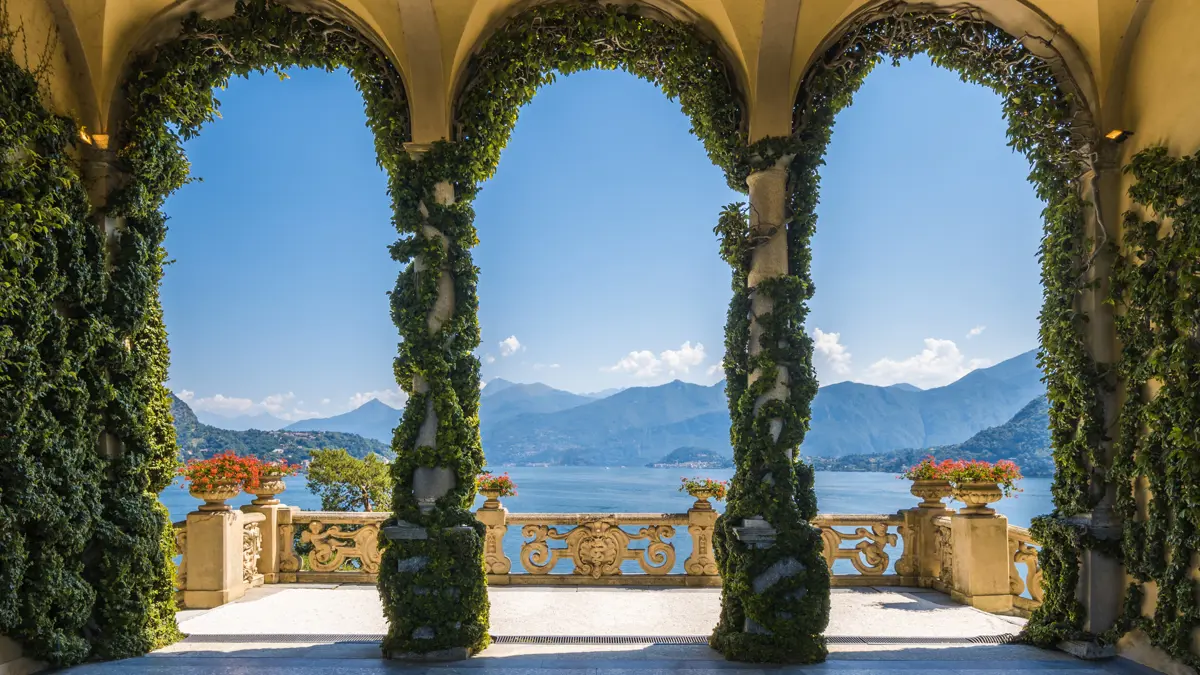
Sightseeing in Italy

Top Italy sightseeing places for your next walking holiday
Italy is made for slow travel. You can wander cobbled streets where Roman emperors once walked, climb medieval towers for panoramic views, and stroll lakeside promenades framed by mountains.
Whether you’re heading for the pastel cliffs of Cinque Terre, the elegance of Lake Como, or the Belle Époque charm of Montecatini Terme, Italy rewards slow travel and sightseeing at your own pace. And yes, there’s always time for a gelato stop along the way.
Top Italy Sightseeing Places
- Villa del Balbianello, Lake Como: Iconic lakeside villa with Hollywood film fame.
- Sirmione, Lake Garda: Roman ruins, thermal springs, and a medieval castle.
- Riomaggiore, Cinque Terre: Colourful cliffside village above a small harbour.
- Castello Brown, Portofino:16th-century fortress with harbour views.
- Montecatini Terme, Tuscany: Spa town known for Art Nouveau elegance.
- Borromean Islands, Lake Maggiore: Palaces, gardens, and island views.
- Tyrol Castle, Merano: Medieval castle overlooking the mountains.
- Trauttmansdorff Botanical Gardens, Merano: 80 landscapes in one garden.
- Bellagio, Lake Como: The “pearl” of the lake with panoramic viewpoints.
- La Limonaia del Castel, Limone sul Garda: Historic lemon house and groves.
Where are the best sightseeing places in Lake Como?
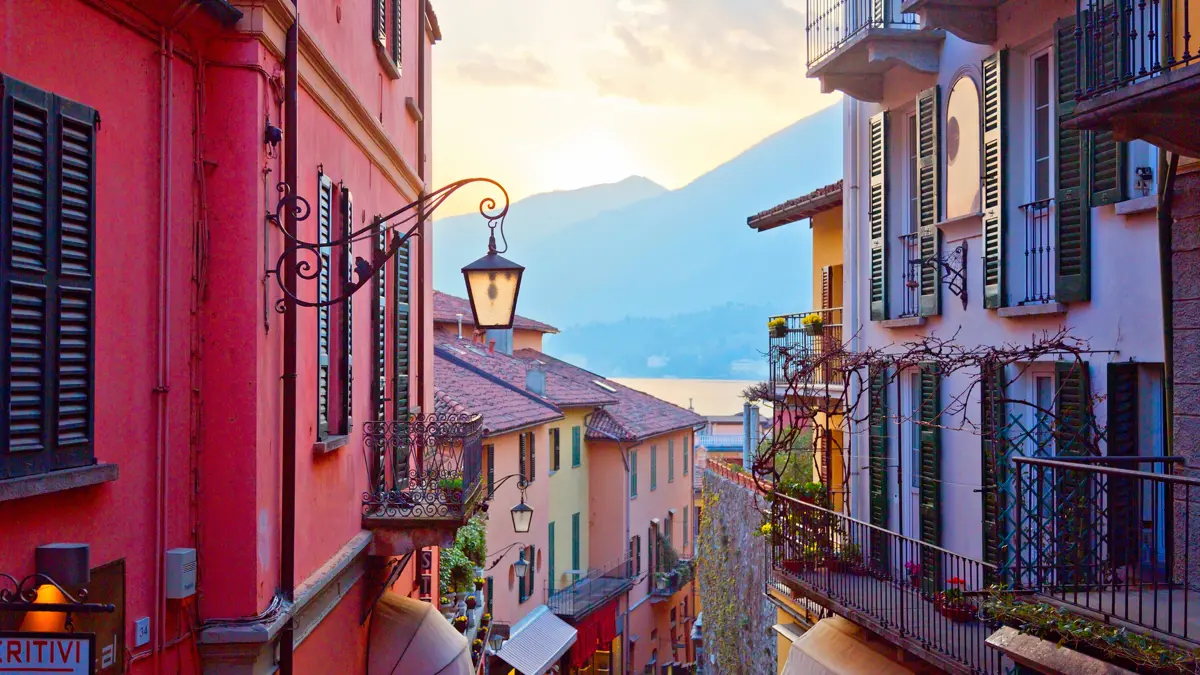
Lake Como is one of the most famous Italy sightseeing destinations. With sparkling waters, mountain backdrops and elegant villas, it is easy to see why.
Top spots include Villa del Balbianello, Villa Melzi, Villa Cipressi, Castello di Vezio and Bellagio.
You can explore by ferry, stroll along lakeside paths, or wander through gardens filled with exotic plants. Every stop reveals a new perspective of this much-loved lake.
Villa del Balbianello, Lenno
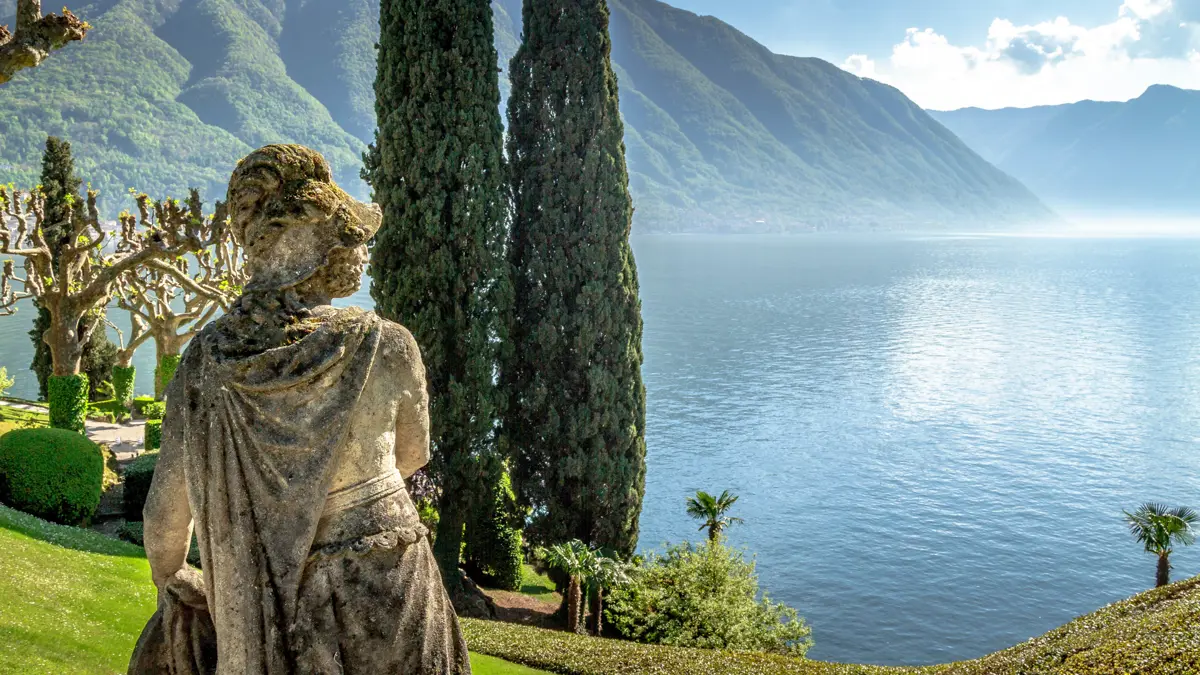
One of the most iconic Italy sightseeing spots, Villa del Balbianello is known for its terraces and ivy-covered arches. It’s appeared in Star Wars and James Bond.
- Inside: 17th- and 18th-century furnishings, explorer memorabilia.
- Outside: manicured gardens and umbrella-shaped holm oaks framing unforgettable lake views.
Tip: Book in advance as tickets sell out quickly.
Villa Melzi, Bellagio
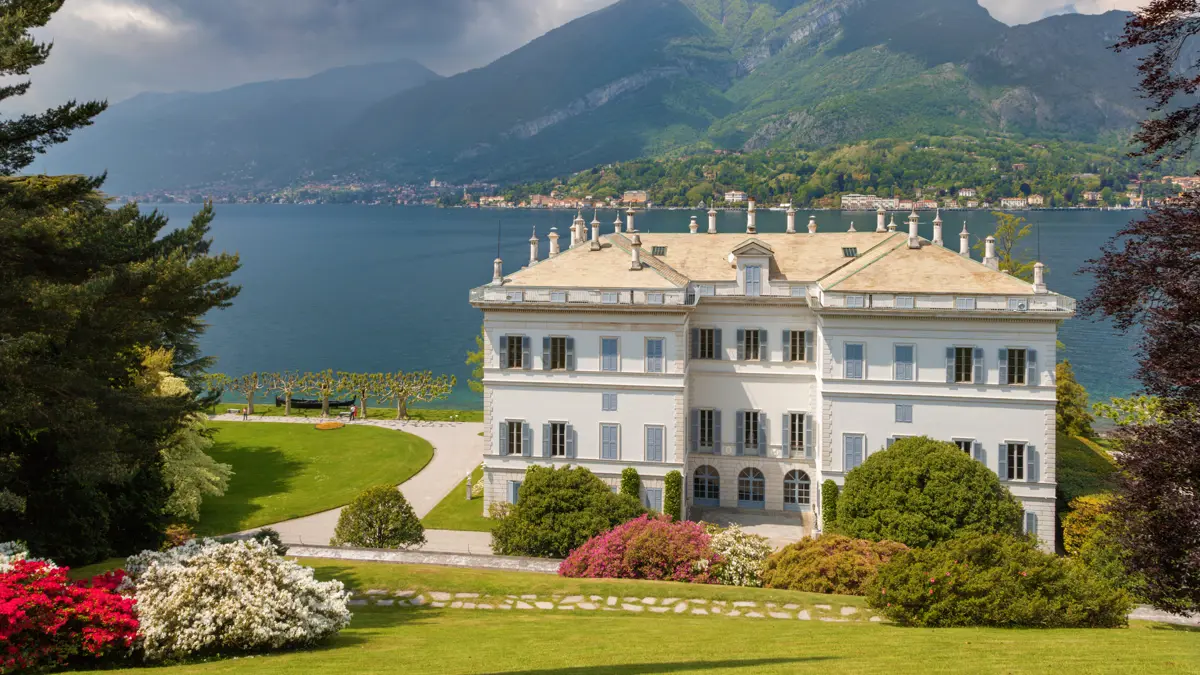
Built between 1808 - 1810 for Francesco Melzi d’Eril, vice president of the Italian Republic under Napoleon, this villa’s gardens are a peaceful escape.
Highlights include: Azaleas, rhododendrons, giant sequoias, a Japanese pond, a Moorish pavilion, and a small museum in the orangery.
Villa Cipressi, Varenna
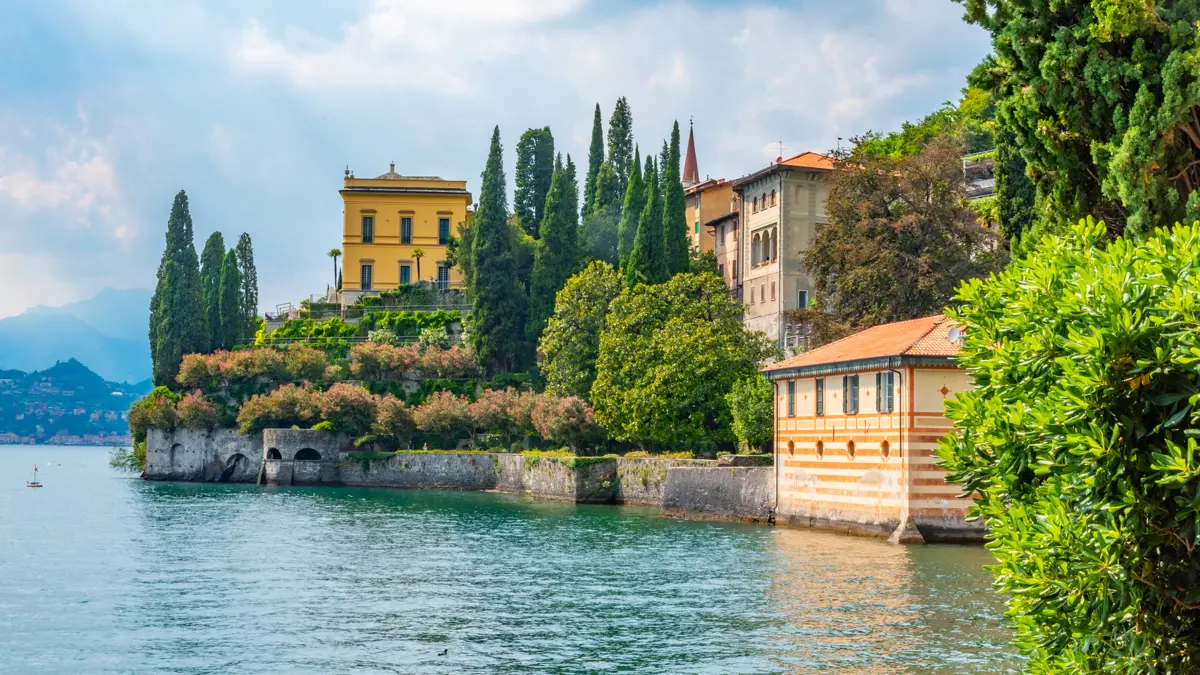
Part hotel, part botanical garden, Villa Cipressi has terraced gardens that slope to the lake. Cypress trees stand alongside exotic plants from around the world. Many visitors buy a combination ticket to see Villa Cipressi and neighbouring Villa Monastero.
Castello di Vezio, above Varenna
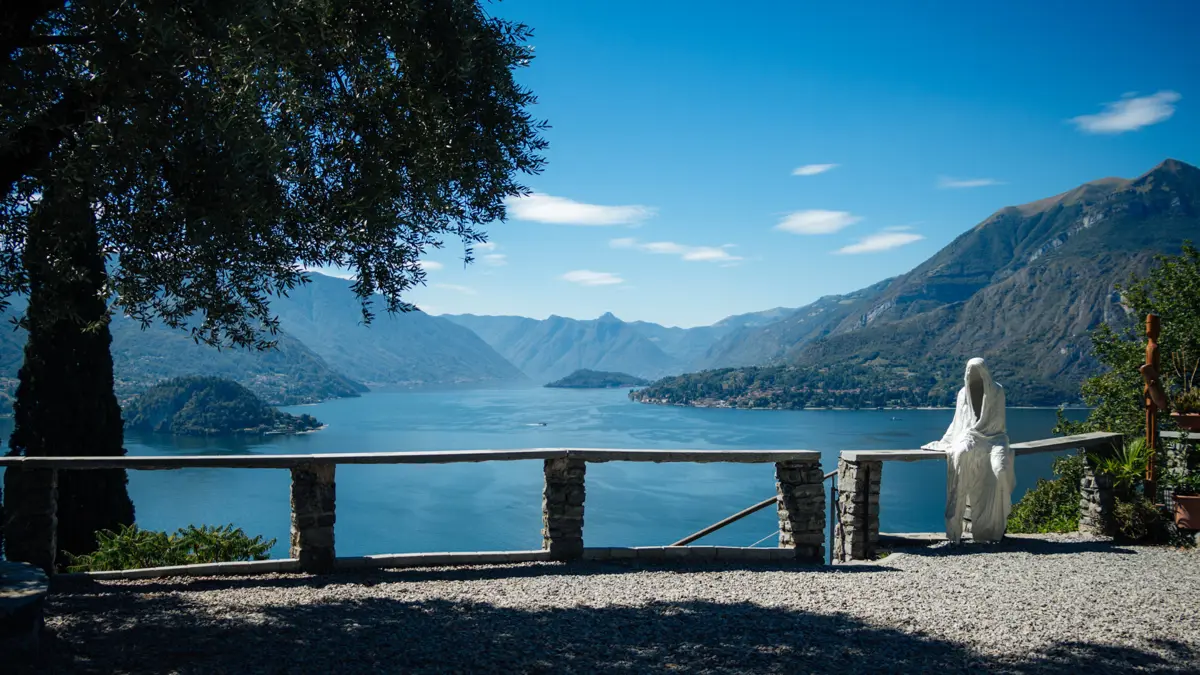
Above Varenna, this medieval fortress offers sweeping lake views. In summer, ghostly white plaster figures appear, serving as tributes to Queen Theodelinda, a Lombard ruler. These sculptures weather naturally through the winter.
Bellagio: the pearl of Lake Como
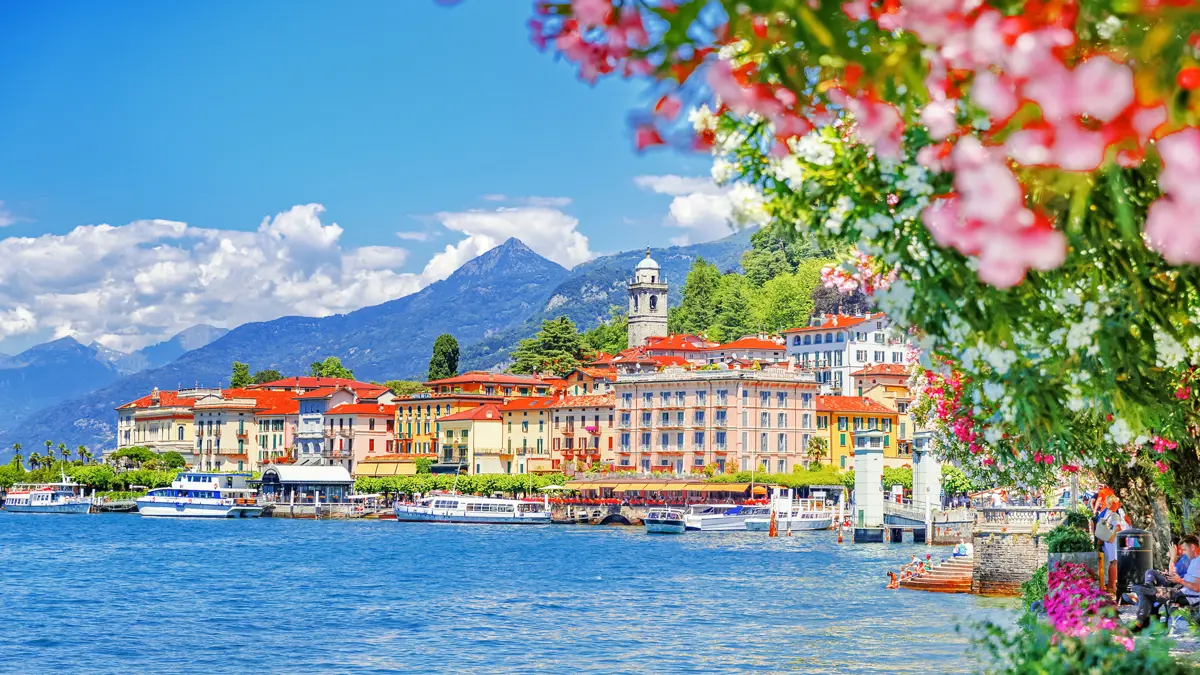
At the point where Lake Como splits into two branches, Bellagio charms with cobbled streets, colourful balconies, and historic villas.
Top sights: Basilica di San Giacomo, Punta Spartivento viewpoint, and the lakeside promenade.
What are the best sightseeing places in Lake Garda?
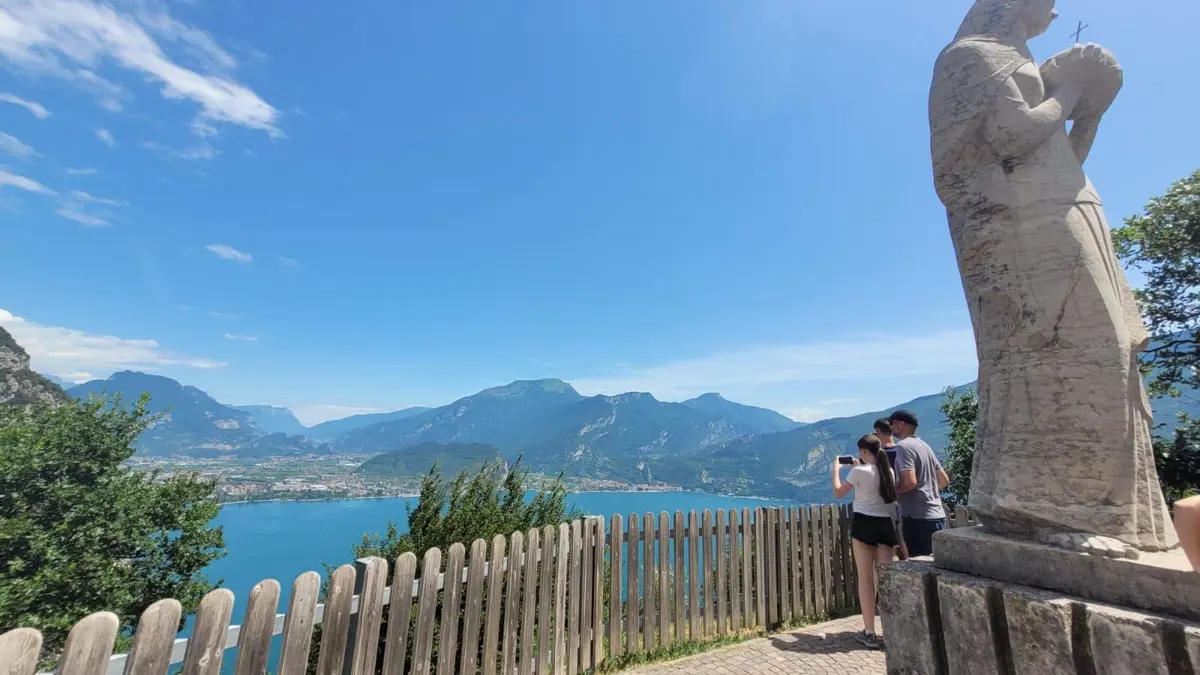
Lake Garda is Italy’s largest lake, stretching from the alpine north to the sun-soaked south. It’s home to ancient castles, Roman ruins, colourful villages, and citrus groves.
Sirmione
Sirmione sits on a narrow peninsula, known for its thermal springs and Roman heritage. The Grotte di Catullo, the remains of a grand 1st-century BC villa, offer incredible lake views. Nearby, Scaliger Castle guards the town’s entrance with towers, a moat, and ramparts you can climb.
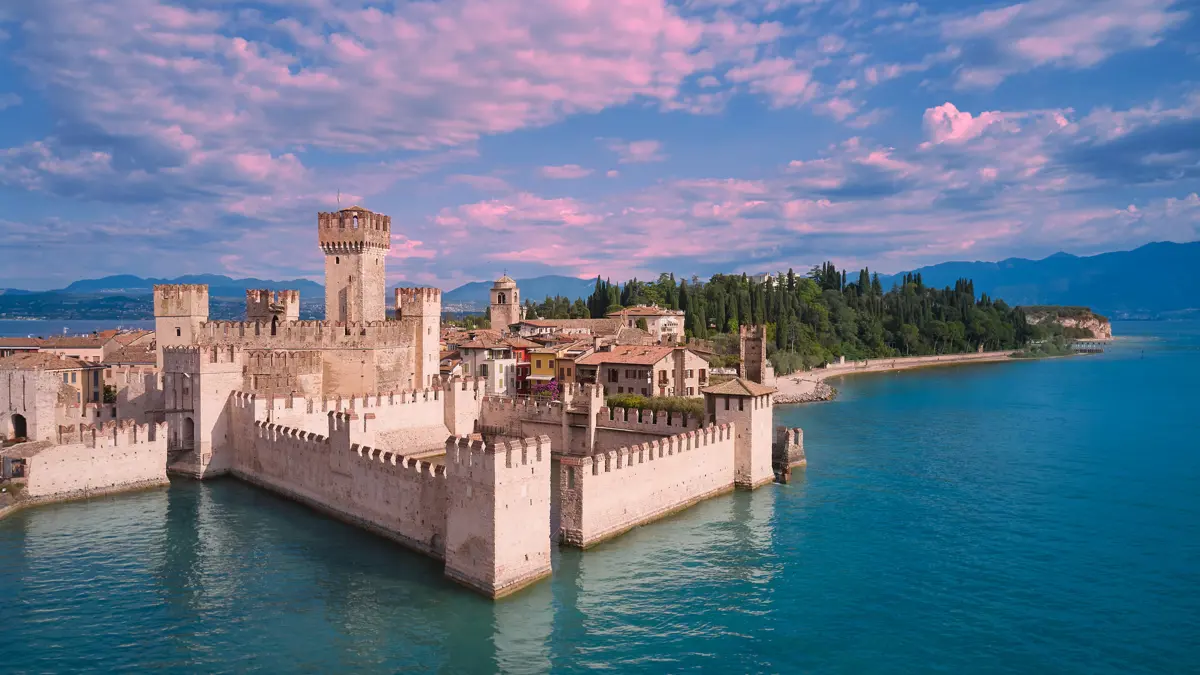
Scaliger Castle
Scaliger Castle is the first thing you’ll spot as you arrive in Sirmione, and it’s straight out of a storybook. With its moat, drawbridge, and towers, this 13th-century fortress is one of the best-preserved castles in Italy.
It was built by the powerful Della Scala family from Verona to guard the entrance to the town. These days, it’s open to visitors who can walk the ramparts, climb the tower, and take in the views. From the top, you can see the red rooftops of Sirmione and the mountains across the lake.
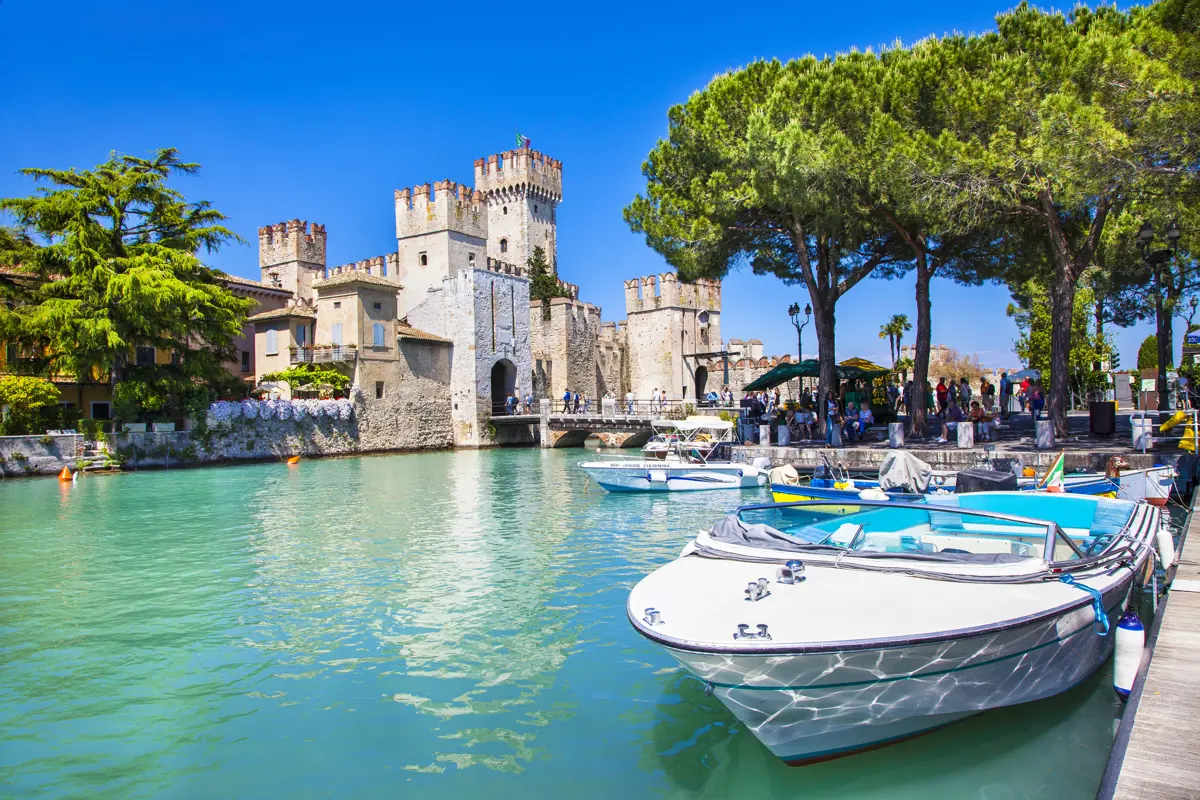
Scaliger Castle’s legend
Locals call it Rocca Scaligera, and it has its own ghost story too. Legend says a young man named Ebengardo once lived here with his love, Arice. One stormy night, a passing knight tried to take Arice by force, but she fought back and was killed. Heartbroken, Ebengardo avenged her death and ever since, it’s said his spirit has wandered the halls, searching for her.
Whether you're here for the history, the views, or a little local legend, Scaliger Castle is a must-see in Sirmione.
Riva del Garda
At the northern tip, Riva blends alpine scenery with medieval charm. The Rocca fortress houses the MAG museum, while the glass funicular to Bastione di Riva rewards you with panoramic views (and a mountaintop café).
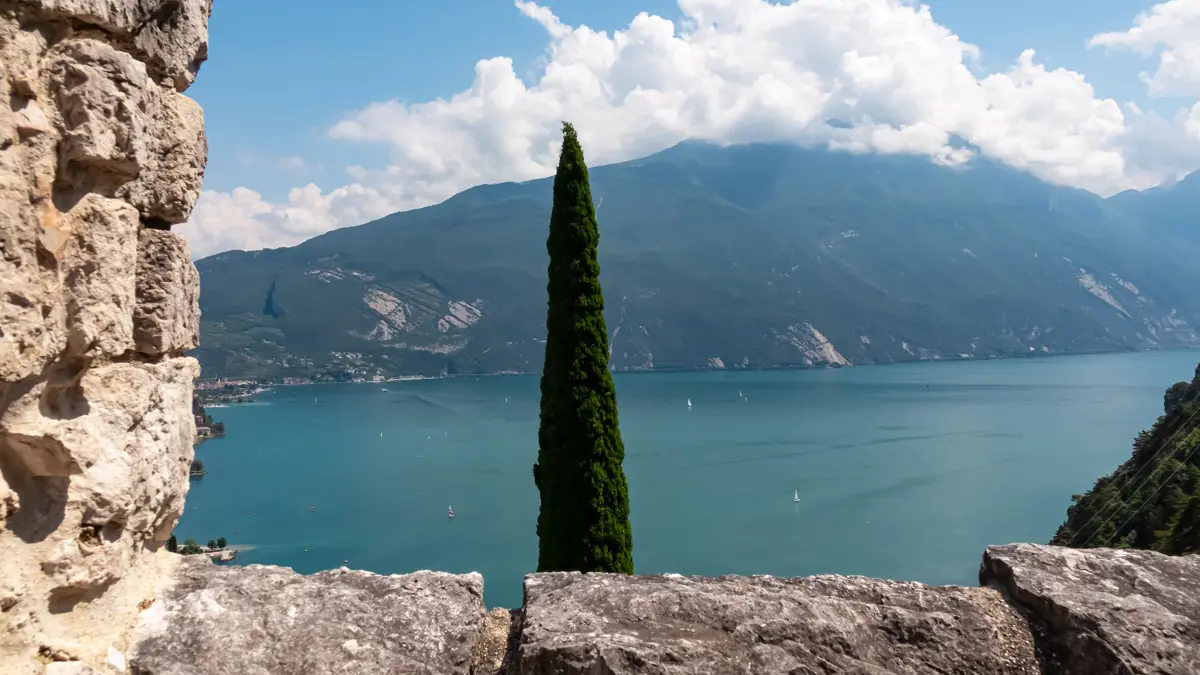
Limone sul Garda
Famous for lemon groves and a lakeside promenade. Visit La Limonaia del Castel, a restored lemon house that explains centuries-old citrus cultivation. The San Rocco Church above the town offers a peaceful viewpoint.

What are the top sights in the Cinque Terre, Liguria?
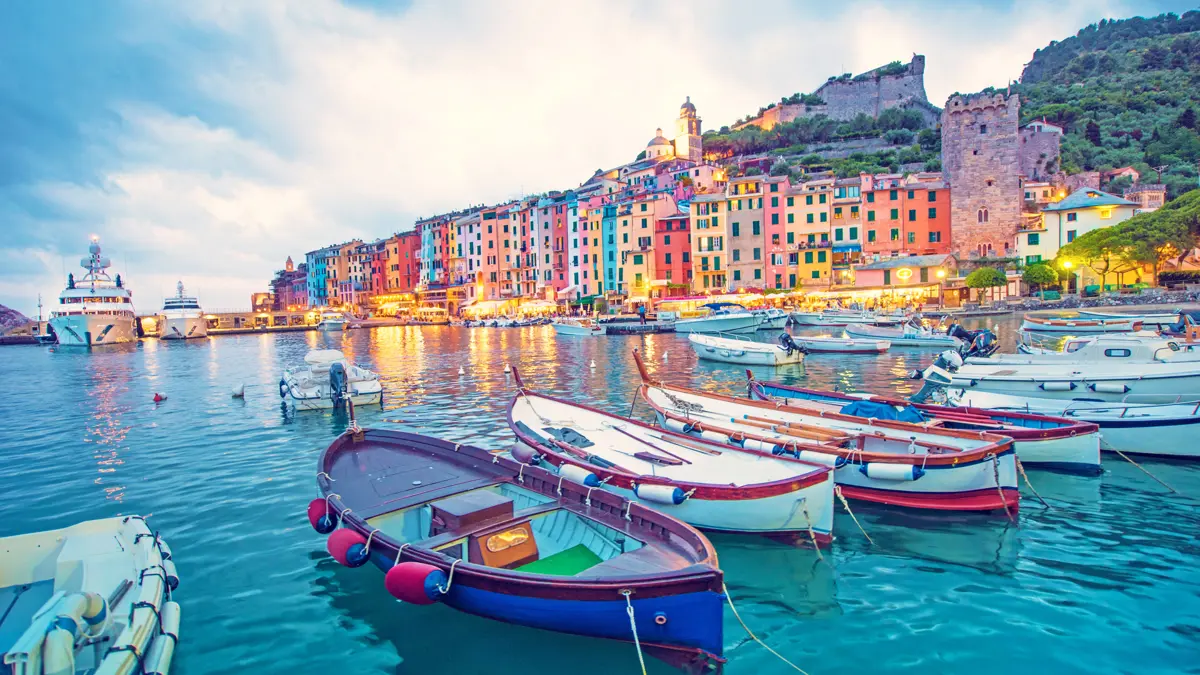
Cinque Terre is a UNESCO World Heritage Site made up of five cliffside villages: Riomaggiore, Manarola, Corniglia, Vernazza, and Monterosso al Mare. Coastal paths link them, offering some of Italy’s most iconic sea views.
Riomaggiore
The southernmost village is a jumble of pastel houses above a small harbour. Key sights include Riomaggiore Castle, the Gothic Church of San Giovanni Battista, and the Sanctuary of Nostra Signora di Montenero, reached via a scenic uphill trail.
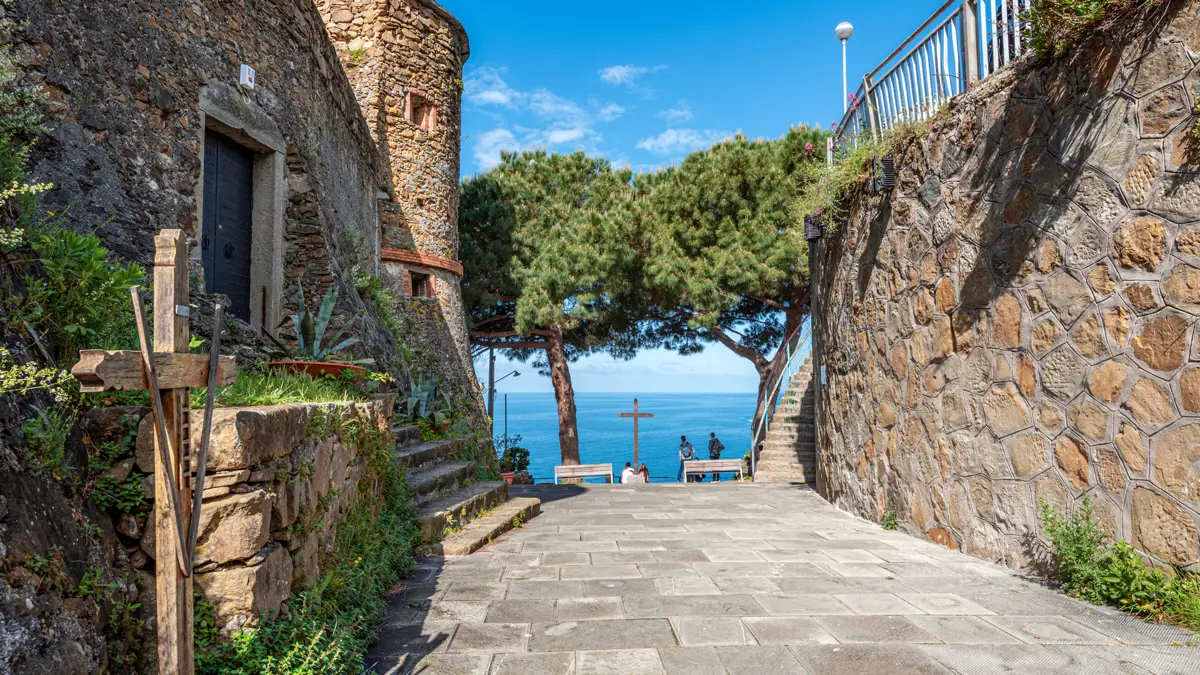
Corniglia
Corniglia is the only Cinque Terre village not directly on the sea. It sits on a 100 metre high rocky promontory surrounded by terraced vineyards. Its elevated position gives it some of the best panoramic views in the region and a quieter, more relaxed feel than the coastal villages.
Getting here is part of the adventure. From the train station, you can either take the shuttle bus or climb the Lardarina, a winding red brick staircase with 377 steps. The climb is steep but rewards you with sweeping views of the Ligurian coast.
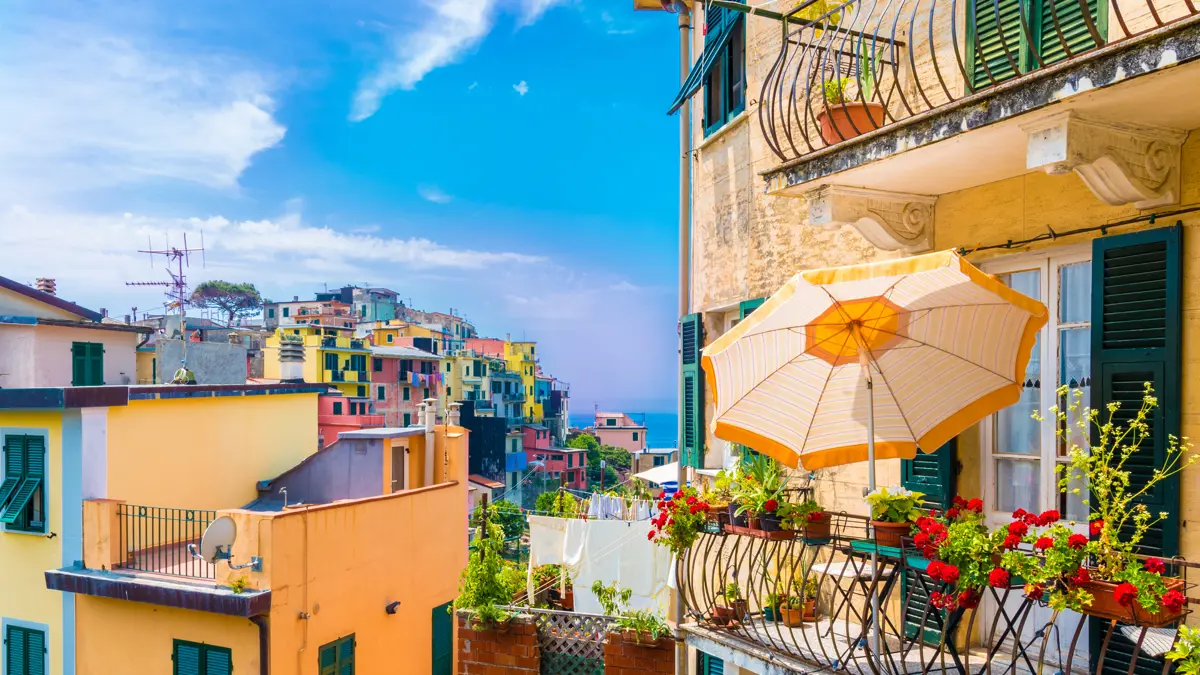
Once at the top, Corniglia reveals pastel-painted houses, narrow lanes and peaceful piazzas. The main street, Via Fieschi, leads to Largo Taragio, the village’s main square. Here you will find family-run restaurants, the Oratory of Santa Caterina, and a moving war memorial honouring local residents.
For the best views, head to the Terrace of Santa Maria, a lookout with uninterrupted sea views perfect for photos. Many visitors time their visit for golden hour light and finish the day with a drink at La Terza Terra, a bar with one of the most scenic terraces in the Cinque Terre.
Top sight: The Church of San Pietro, built in 1334, is a masterpiece of Ligurian Gothic architecture. It features a white marble rose window, black and white stonework, and colourful stained glass windows. Inside, you can see centuries old religious art and enjoy a cool, peaceful retreat from the summer sun.
Monterosso al Mare
The biggest of the five villages and the best choice if you’re dreaming of beach days with a side of sightseeing.
Monterosso’s split into two parts: the modern Fegina area and the traditional old town.
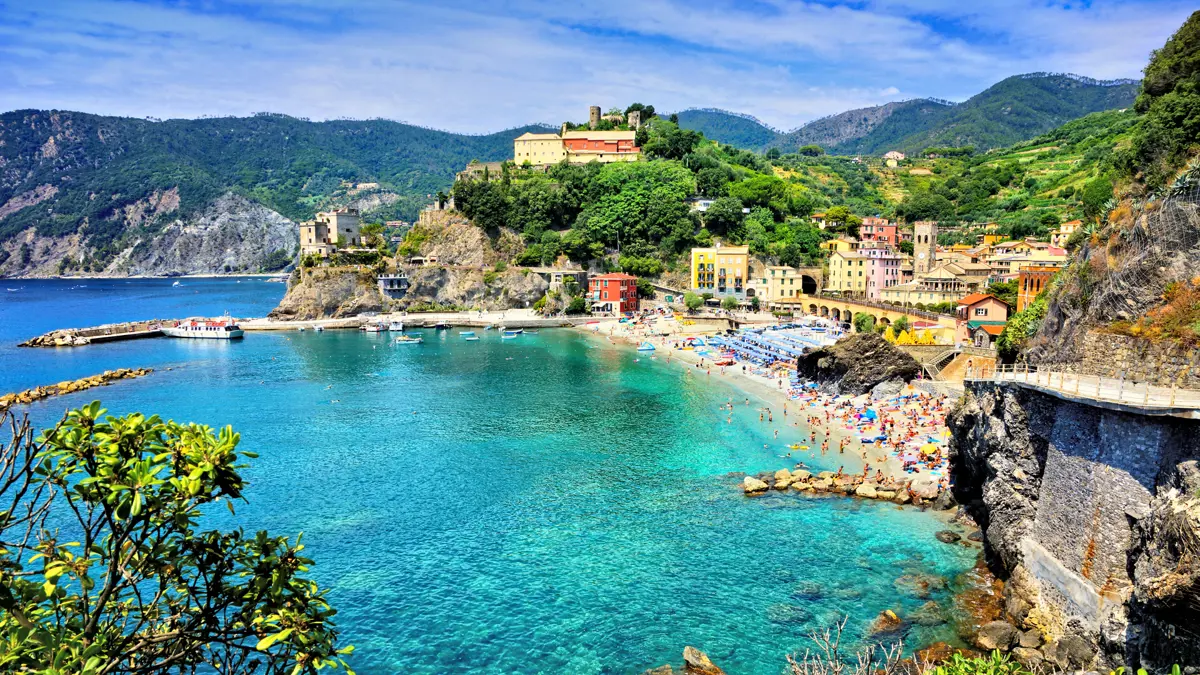
Beach days and seafront strolls
In Fegina, you’ll find the longest sandy beach in Cinque Terre. It’s perfect for sunbathing or renting a paddleboard or kayak. At the far end near the giant Neptune statue, there’s a quieter public beach with crystal-clear water.
The promenade running along the seafront is lined with gelato shops, cafés, and beach bars. On Thursday mornings, the local market brings even more colour and flavour to the town.
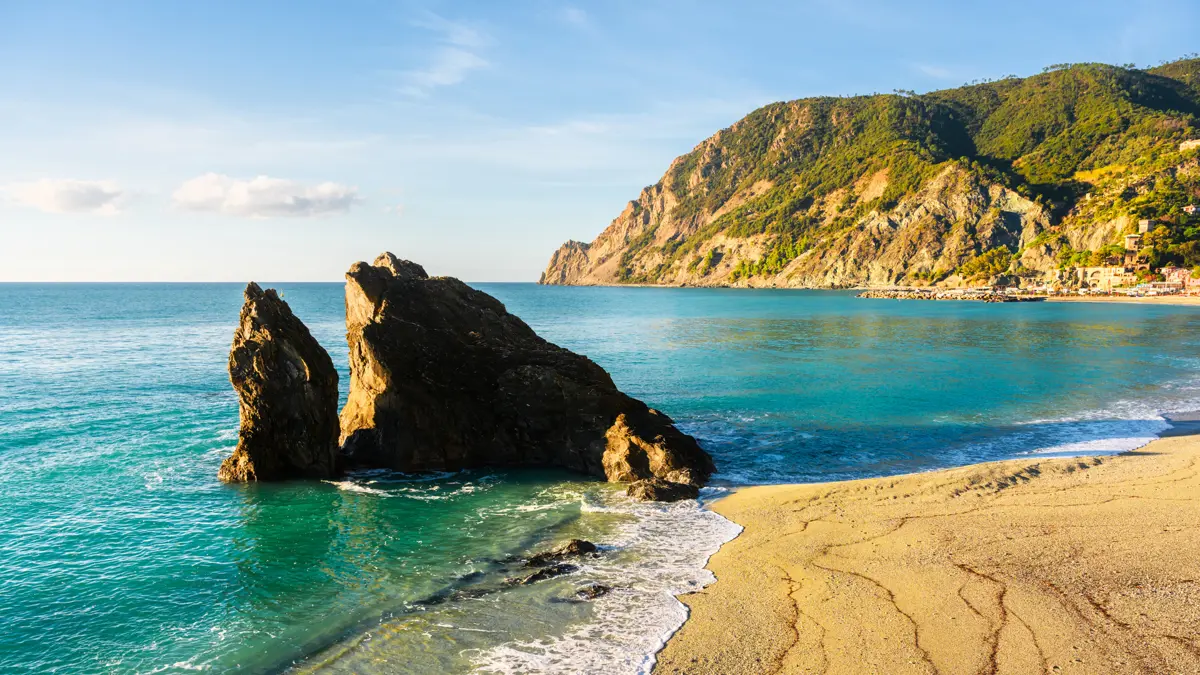
Exploring the Old Town
Cross over to the old part of Monterosso and discover narrow lanes filled with little shops, wine bars, and family-run restaurants. This is the place to try Ligurian focaccia, enjoy an aperitivo, or have dinner with a view.
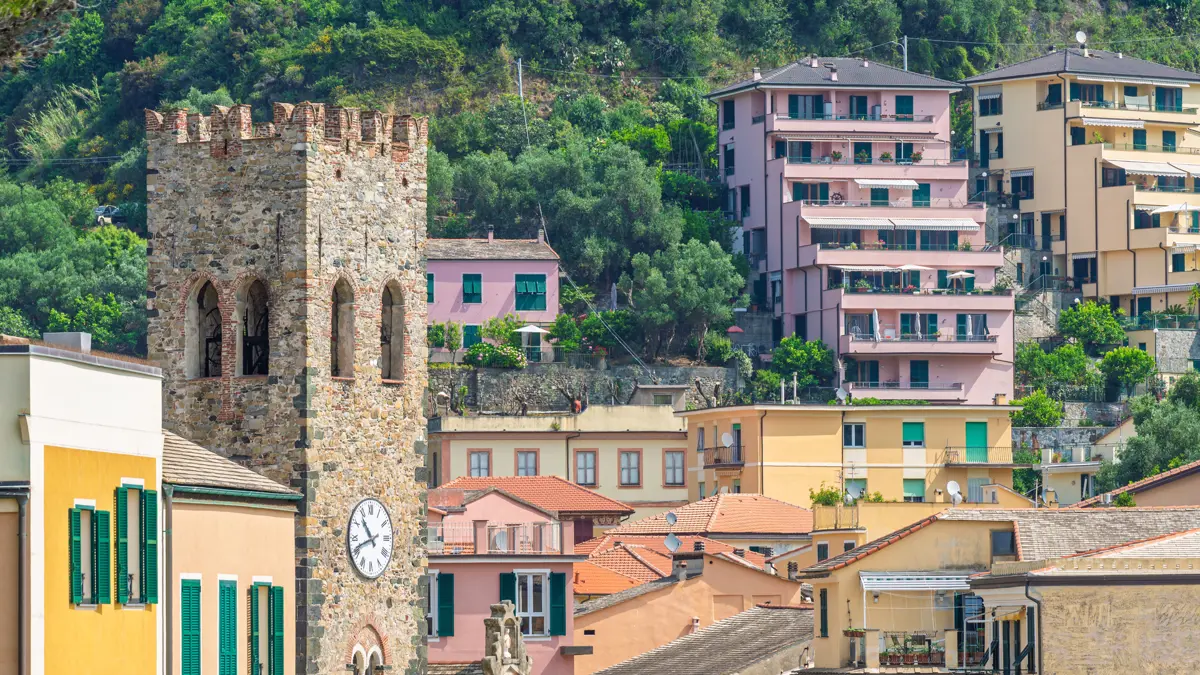
Sanctuary of Nostra Signora di Montenero
For one of the best views in the Cinque Terre, take the trail up to this hilltop sanctuary. It overlooks all five villages and feels like a hidden gem. The walk starts from the marina and takes about 50 minutes, with a few steep sections – but the views are more than worth the climb.
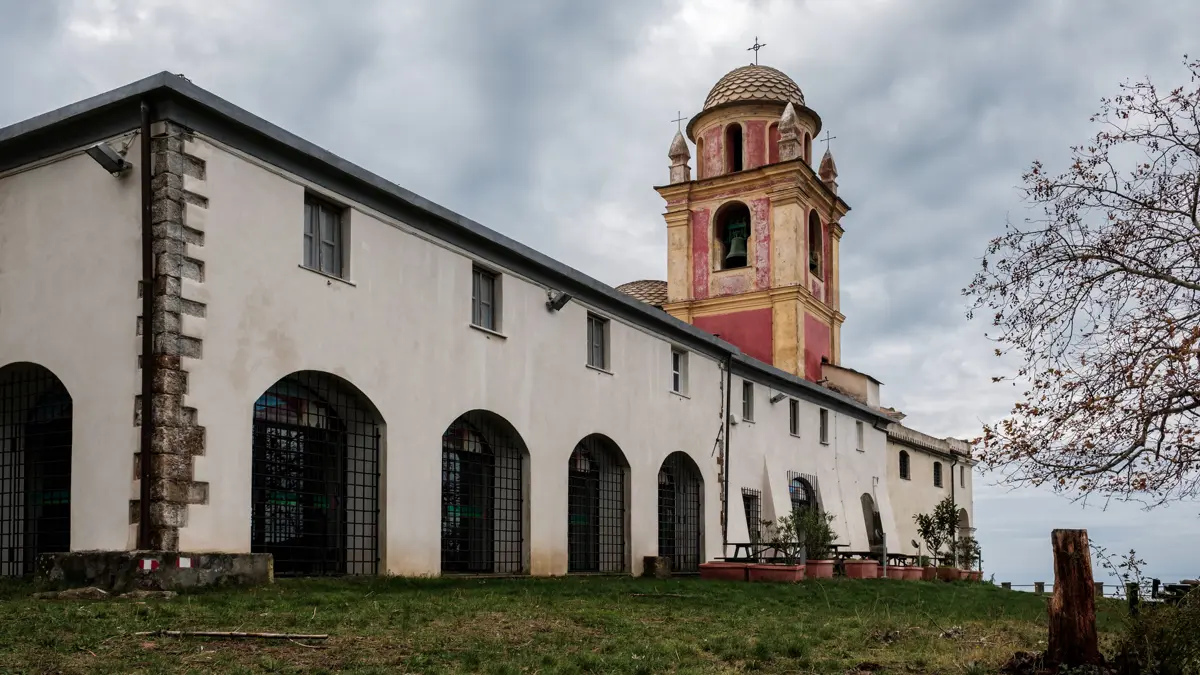
Aurora tower
This coastal watchtower once protected Monterosso from pirate attacks.Today, it houses a small restaurant and offers panoramic sea views.
From here, you can see the full sweep of Fegina beach and Ligurian coastline.
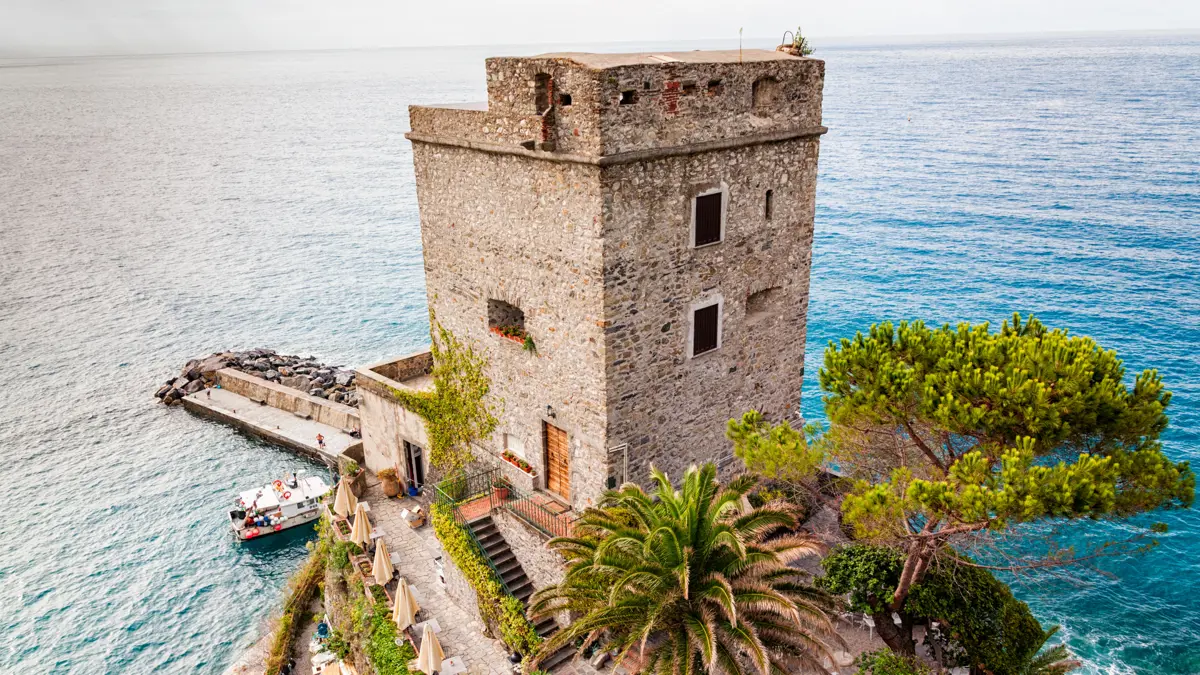
Church of San Giovanni Battista
The largest church in Cinque Terre, this 14th century building stands out for its black and white marble steps and rose window. Inside, you’ll also find beautiful Gothic arches.
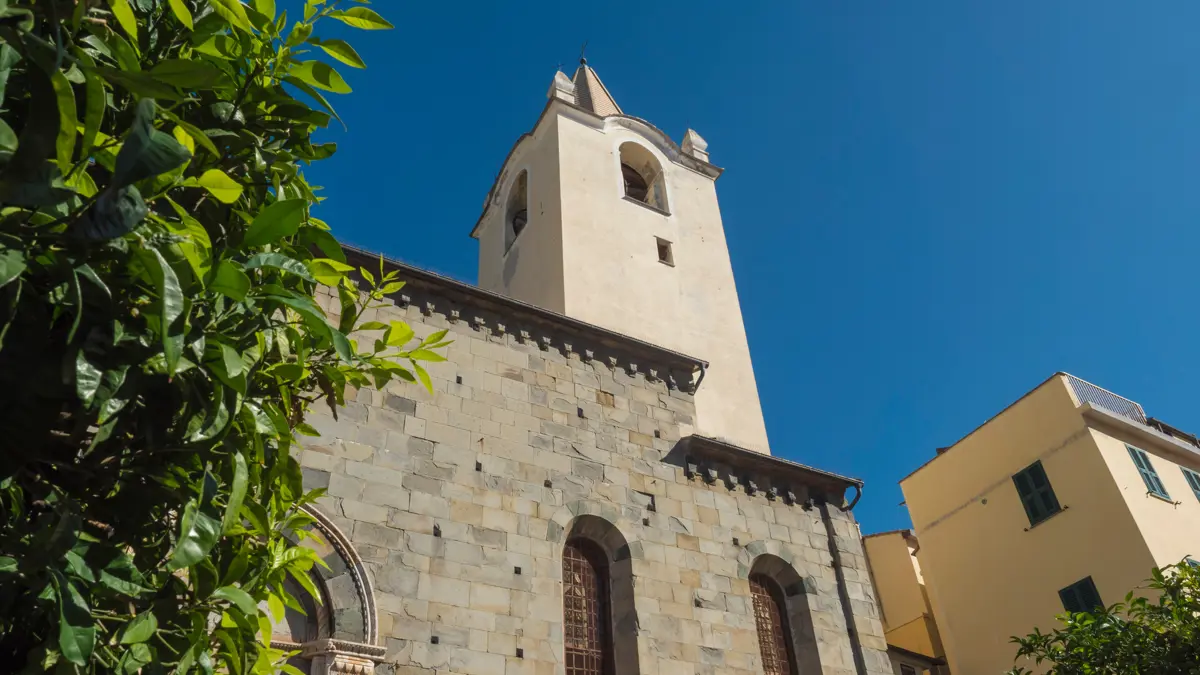
Sightseeing in Portofino, Liguria
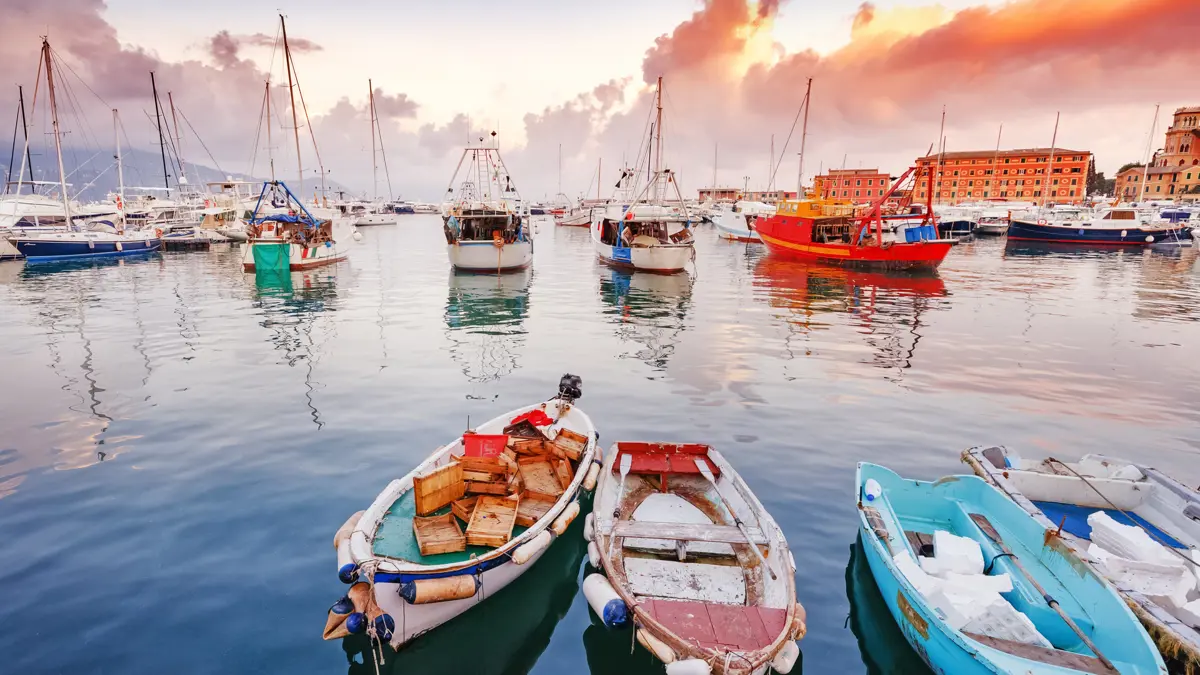
This famous harbour town is known for its pastel façades and yacht-filled marina, but it’s also a fantastic spot for walks, nature, and art. Portofino’s gentle trails and historic sites make it a well-rounded stop on any sightseeing holiday.
Castello Brown
This 16th-century fortress stands proudly above the harbour and offers sweeping views over the Gulf of Portofino. Wander through its Mediterranean gardens and imagine the grand weddings that often take place here.
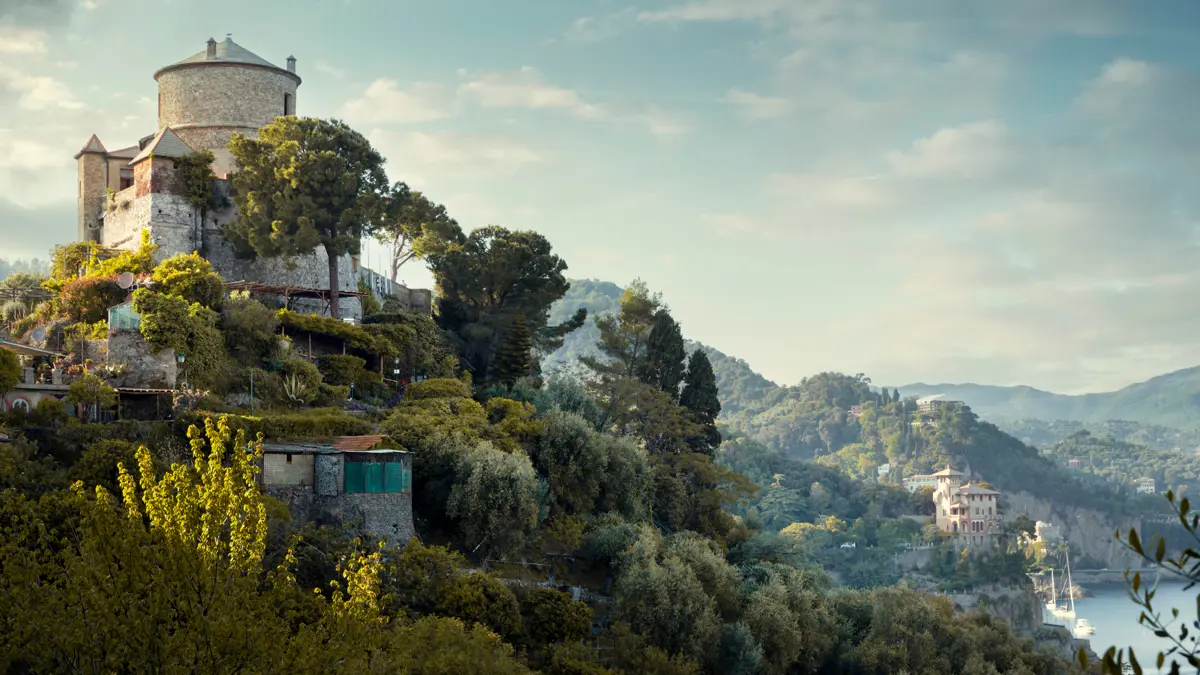
Church of San Giorgio
A short walk from the castle, this rebuilt 12th-century church is simple but atmospheric, and a great place for a pause with a view.
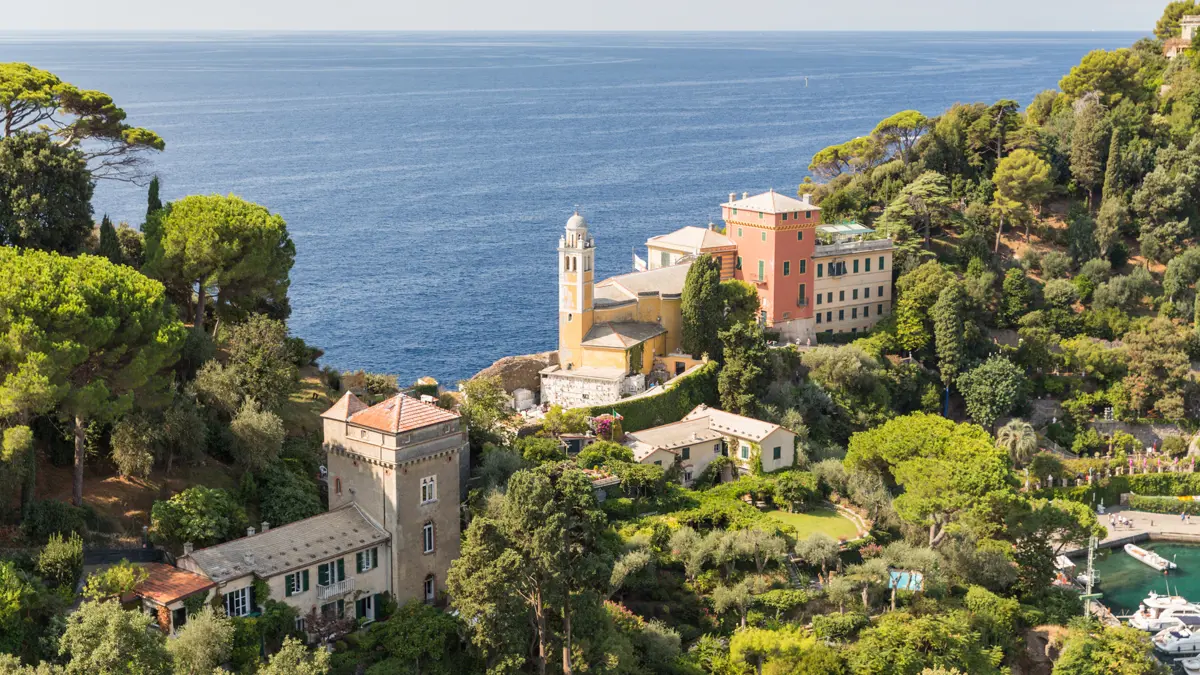
Portofino Lighthouse
Follow the coastal trail to this clifftop lighthouse. You can’t go inside, but you might spot dolphins from the viewing platform.
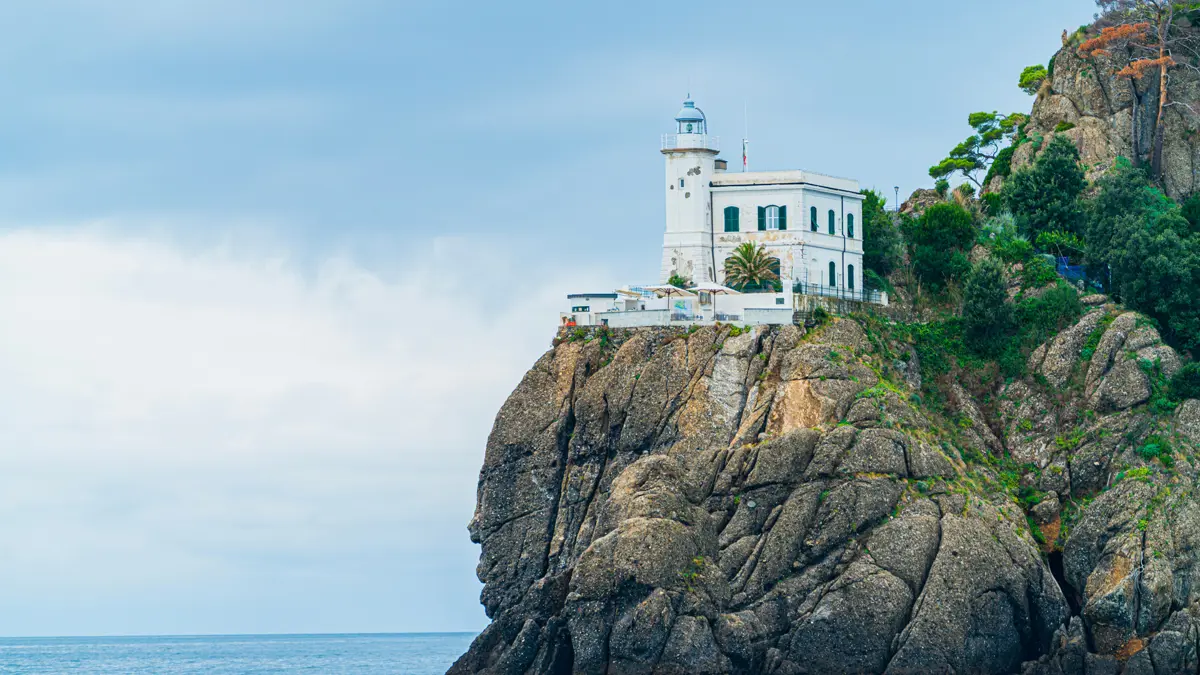
San Martino Church (Divo Martino)
This Romanesque gem was built in 986 and features 18th-century interiors and relics of martyrs brought here in the 1500s.
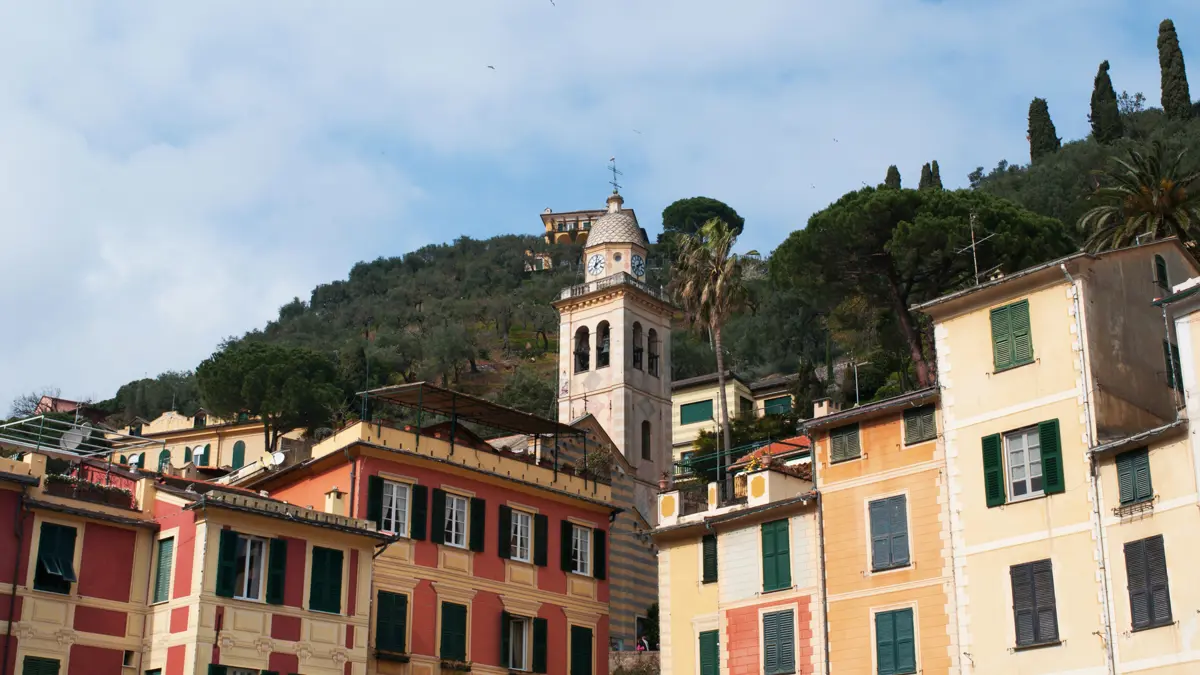
Abbey of San Fruttuoso
Reached by boat or scenic walk, this waterfront abbey is one of the best hidden gems on the Ligurian coast. Have a swim, a stroll, or a romantic lunch beside the sea.
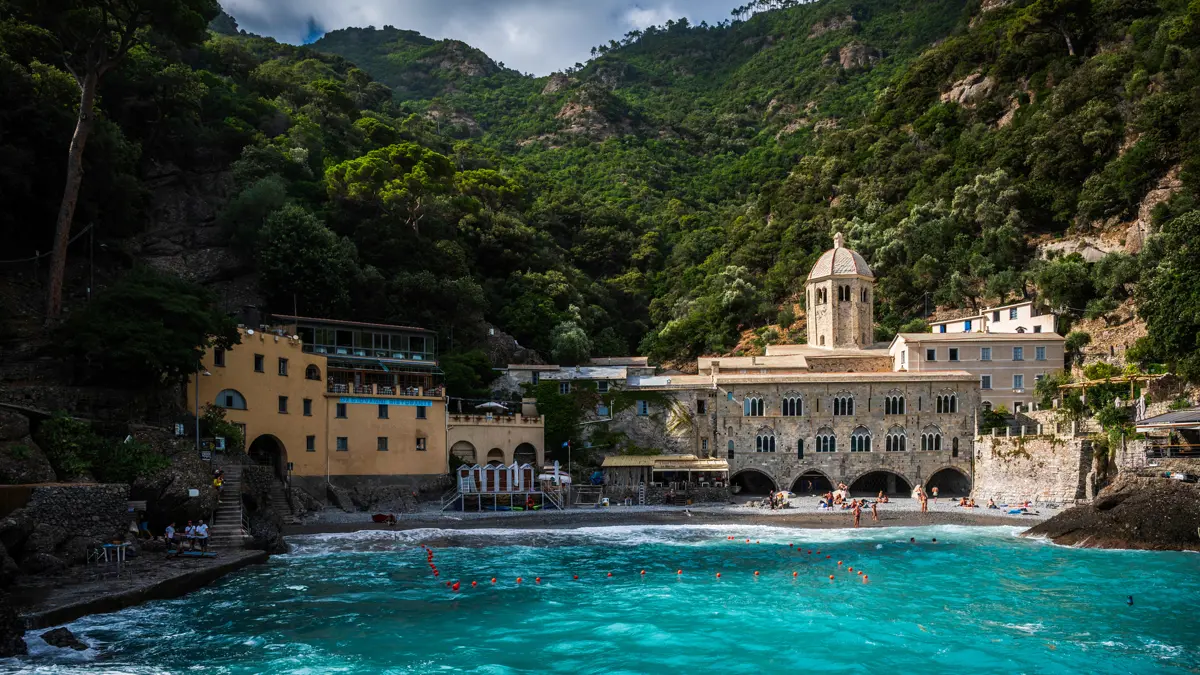
What are the must-see places in Montecatini Terme, Tuscany?
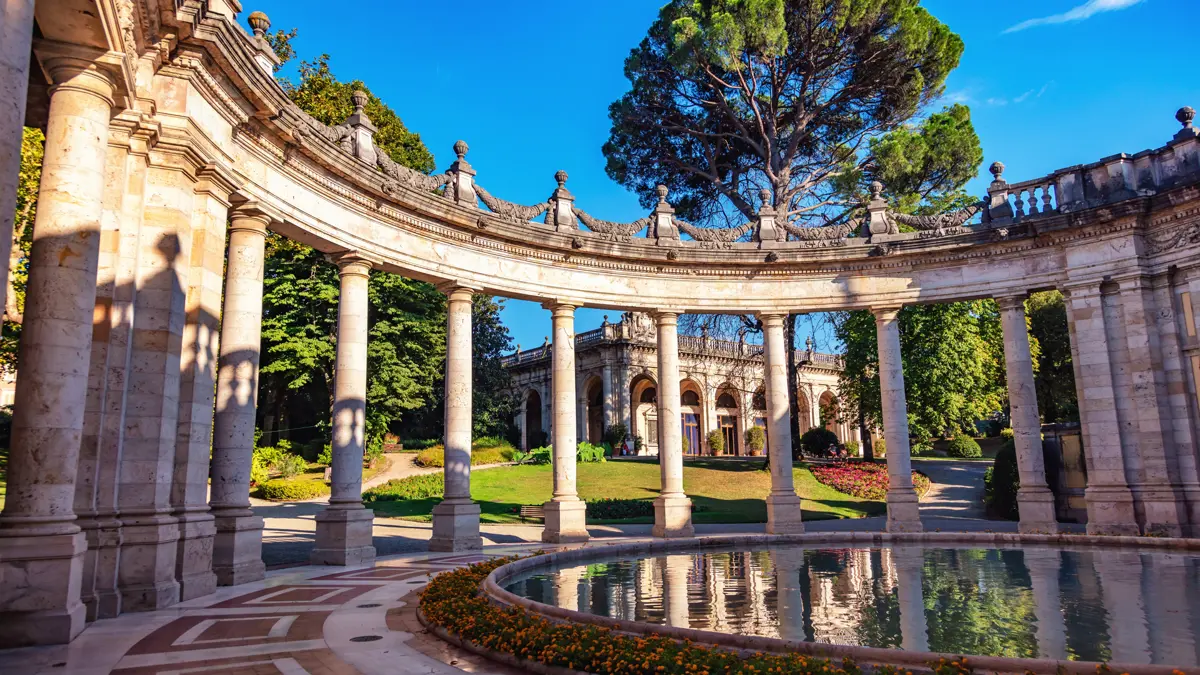
This elegant spa town has been welcoming wellness-seekers for centuries. Famous for its thermal springs and Belle Époque charm, Montecatini Terme offers relaxation with a side of sightseeing.
Known for its healing waters and Art Nouveau elegance, Montecatini Terme is one of the most relaxing Italy sightseeing spots. Montecatini Terme is the town’s pride and joy: a complex of historic spas drawing water from four natural springs.
Inghams top tips
“I love to take a stroll along the majestic aqueduct of Lucca and it’s must-do walk for anyone visiting from Montecatini. The stunning 19th-century structure was built in 1822 and with its 459 arches, it’s a perfect blend of architecture, nature and history. For me, this walk offers a unique perspective on the city's rich history and cultural heritage and I always recommend it to all our guests.”
- Jeni - Montecatini Terme & Liguria
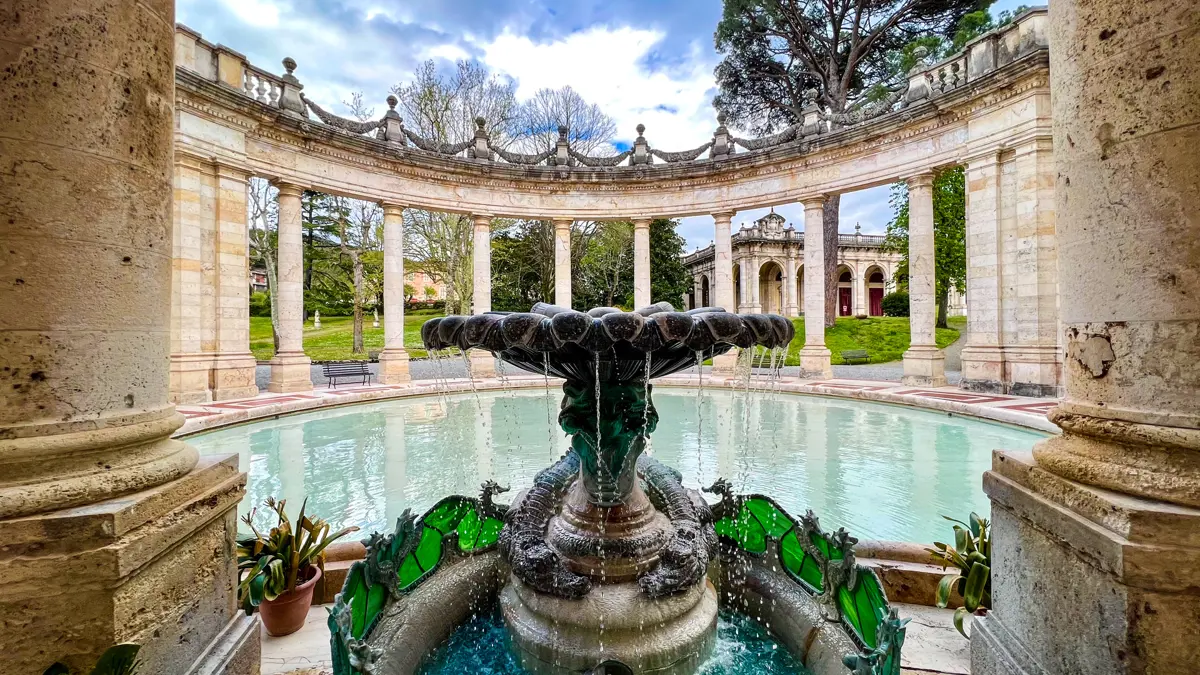
Montecatini is a brilliant base for day trips to Florence, Lucca, Pisa, Siena, San Gimignano, and the Chianti wine region. Even Cinque Terre and Portovenere are within reach.
Our excursions in Montecatini

Sightseeing in Lake Maggiore
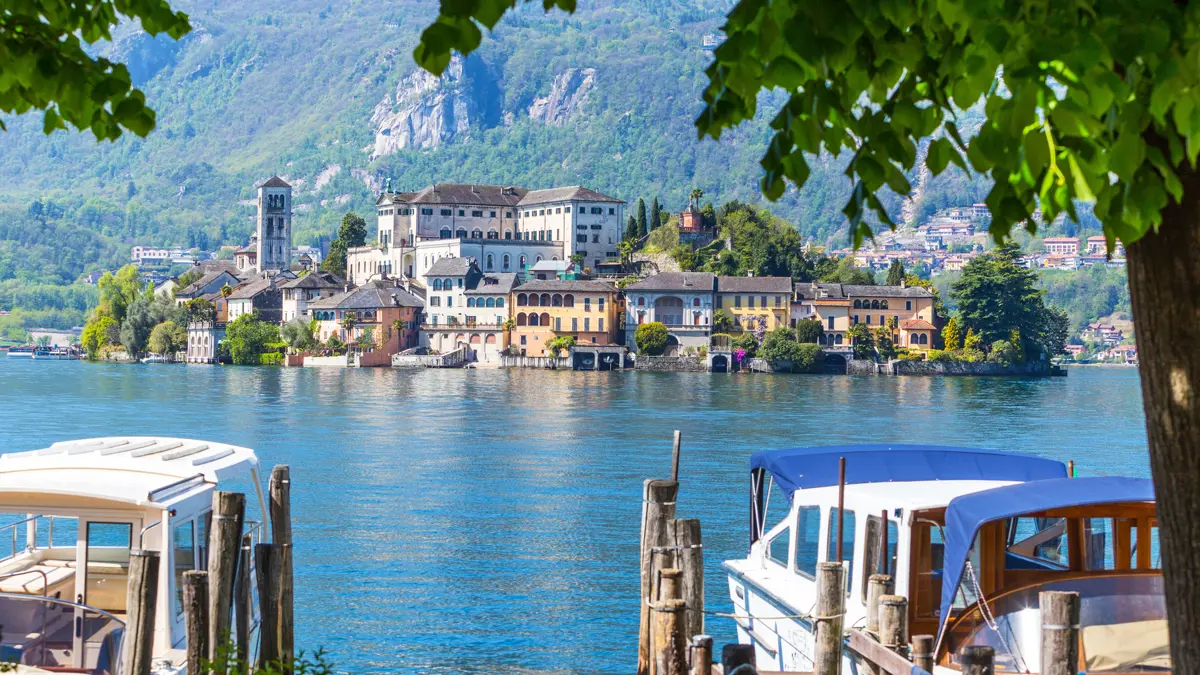
Lake Maggiore offers alpine views, peaceful gardens, and charming lakeside towns. Less busy than its neighbouring lakes, it’s a great place to slow down and soak up the scenery.
Stresa and the Borromean Islands
Stresa’s a great base for exploring the Borromean Islands. Isola Bella boasts a stunning palace and tiered gardens; Isola Madre’s a tranquil botanical paradise; and Isola dei Pescatori, a fishing village with delicious local food and a year-round population of just a few dozen.
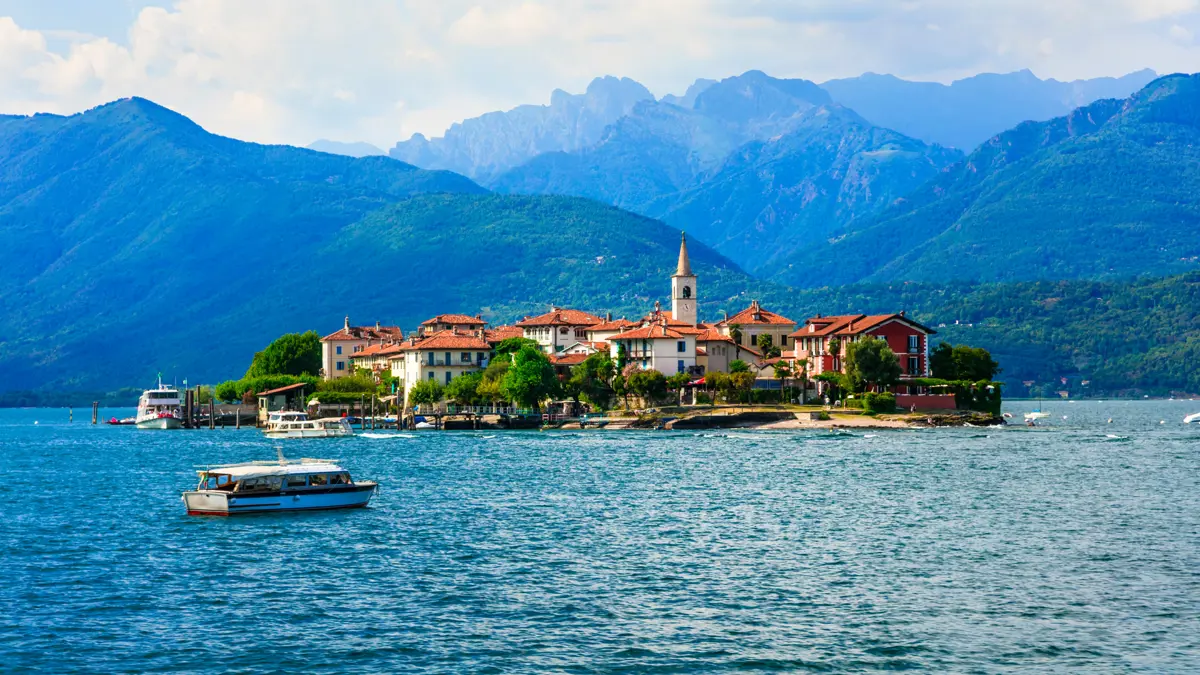
Villa Pallavicino
This lakeside park is just a short stroll from Stresa and includes a rose garden, and a café.
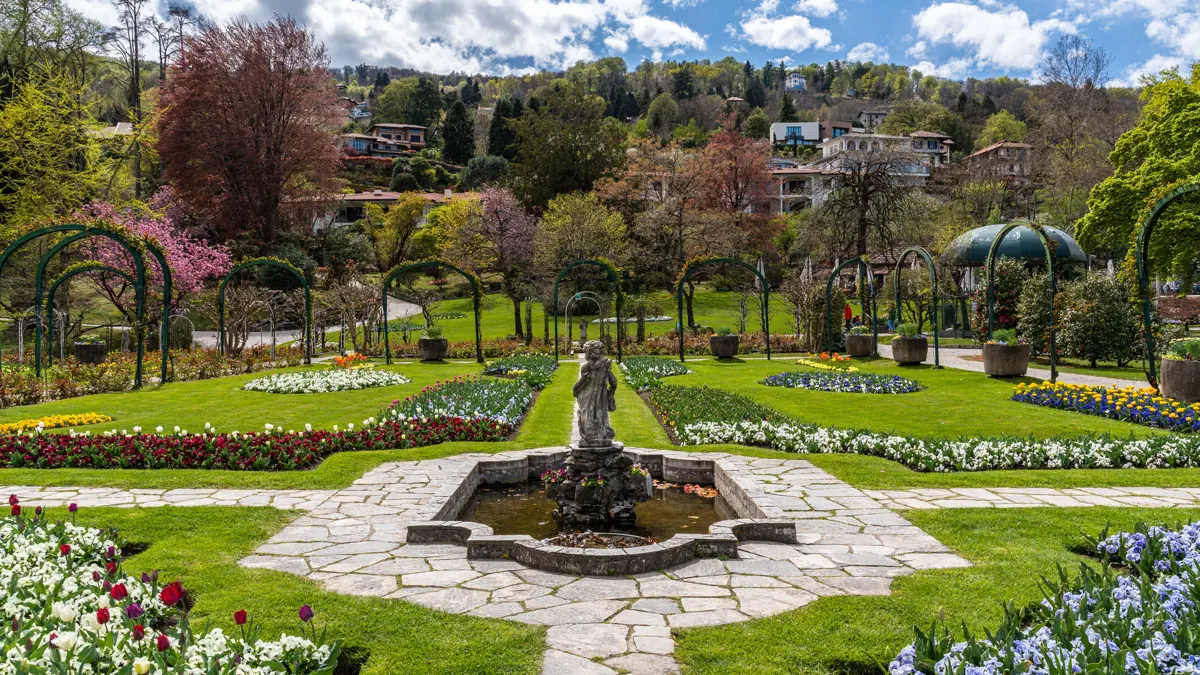
Santa Caterina del Sasso
This 12th-century hermitage clings to the cliffs and is reachable by boat or panoramic staircase. The frescoes and lake views make it a must-see.
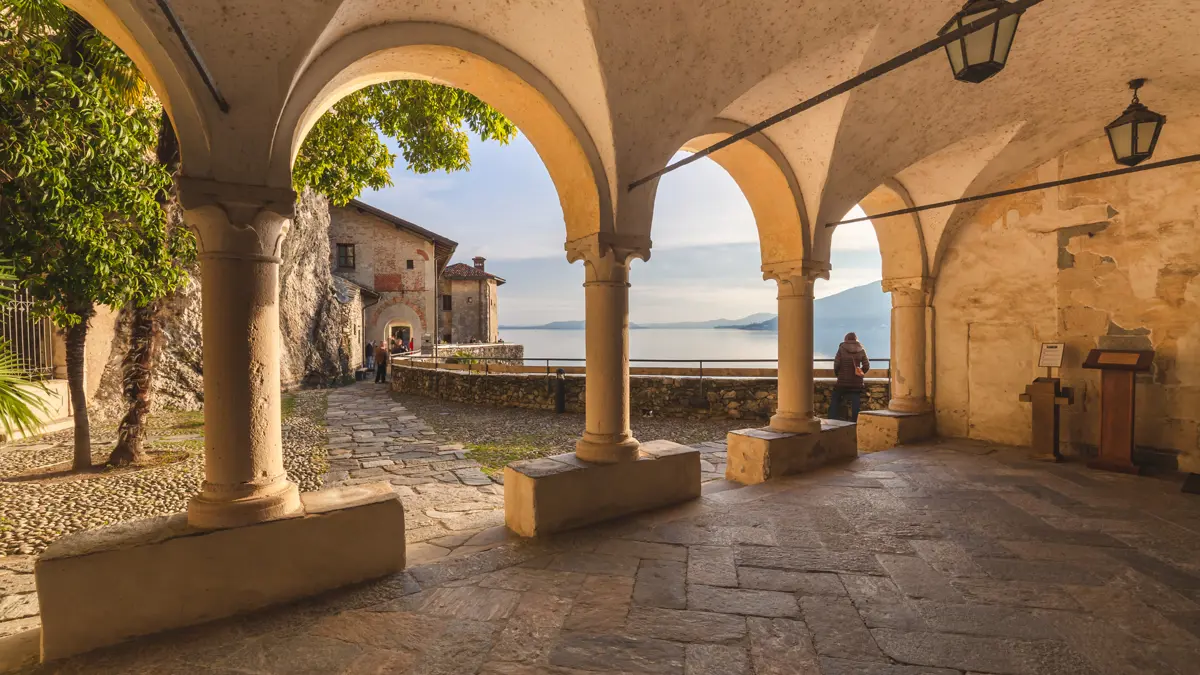
Merano, The Dolomites
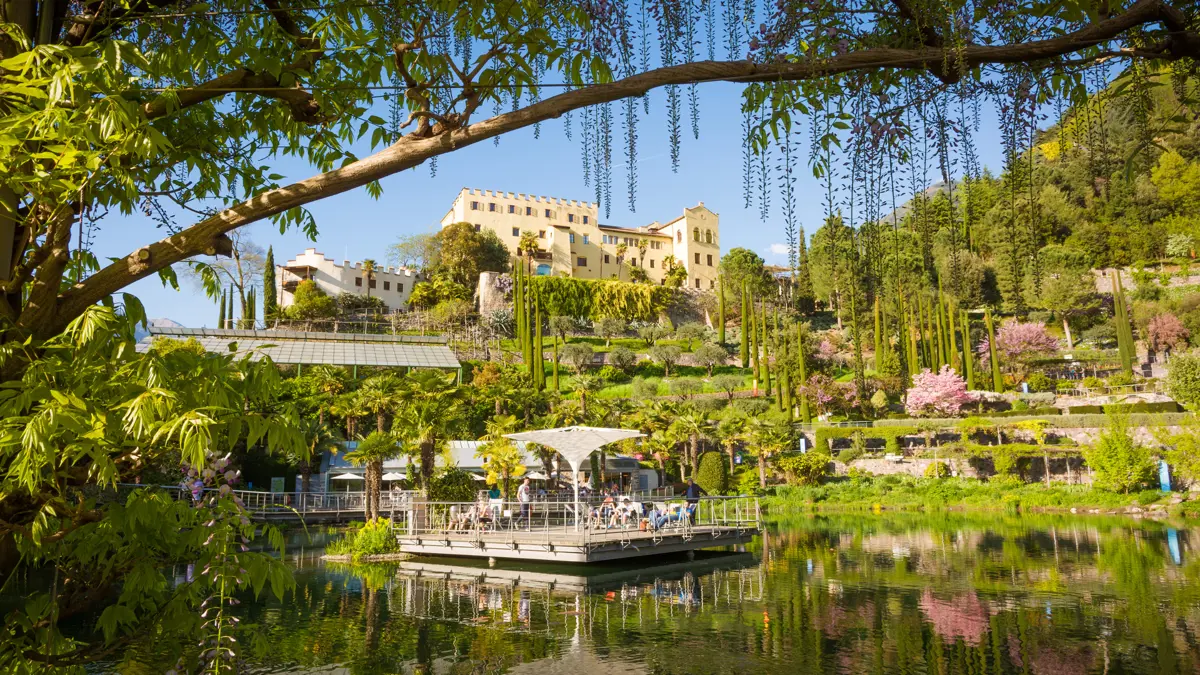
Merano’s where alpine beauty meets spa-town elegance. Set against a mountain backdrop, it offers walks, gardens, and medieval treasures.
Tyrol Castle
Once home to the Counts of Tyrol, this castle now features a cultural history museum, complete with medieval chapels, Romanesque portals and a powerful exhibition on South Tyrol’s past.
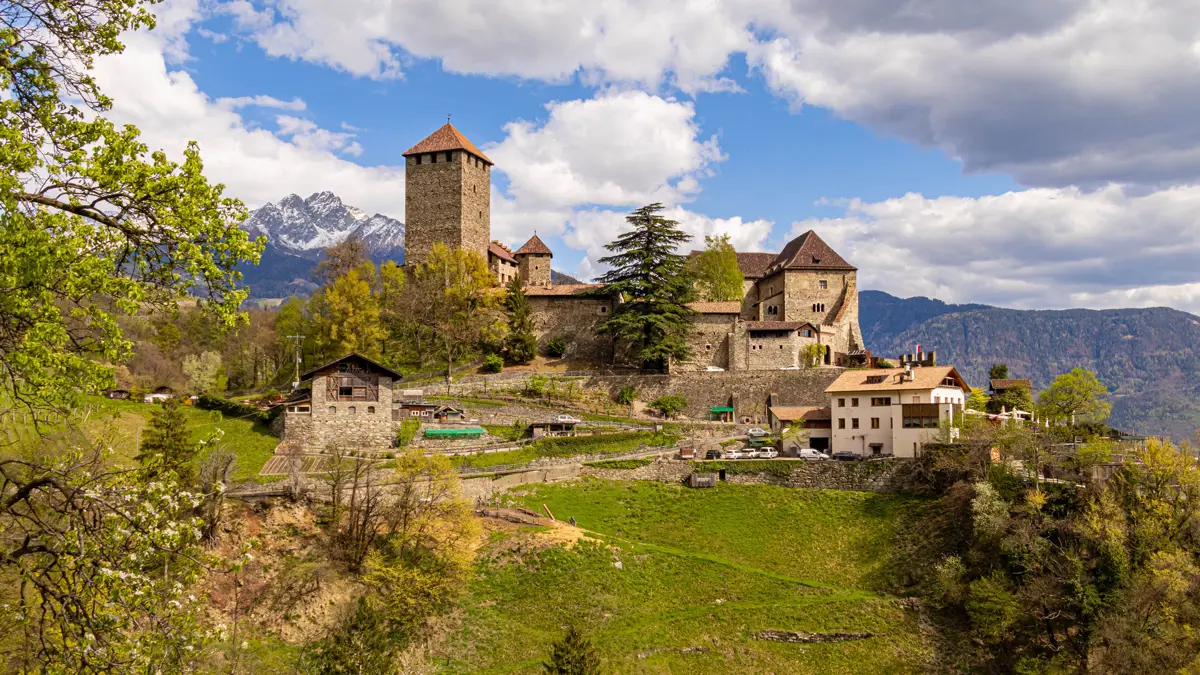
Medieval porticoes
Merano’s Via dei Portici is the town’s historic shopping street. Stretching 400 metres under graceful arches, it’s lined with shops, bars, and eateries.
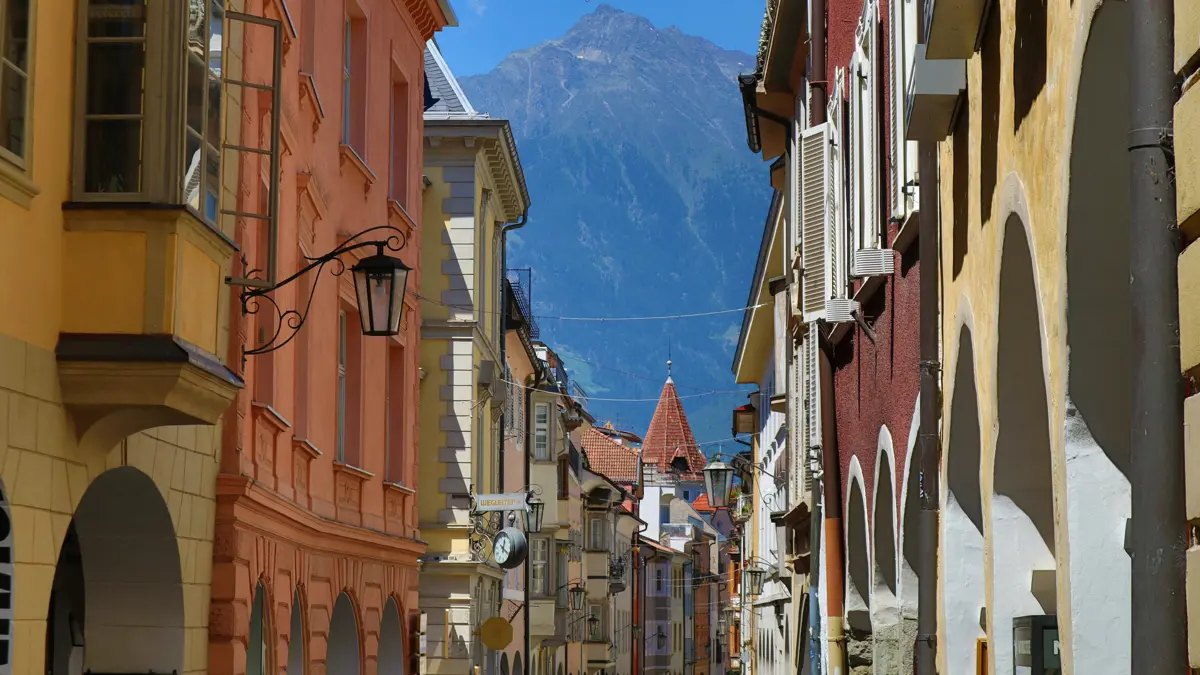
Trauttmansdorff Botanical Gardens
Explore 12 hectares of beautifully designed gardens at Trauttmansdorff, home to over 80 unique landscapes showcasing plants and flowers from around the world.
From Merano, you can reach the gardens on foot by following Sissi’s Path: a 3.2-kilometre scenic walk inspired by Empress Elisabeth of Austria. Known for her love of long strolls, Sissi spent her summers at Trauttmansdorff Castle.
The path takes you through 11 charming stops, each sharing a part of her story, and leads from the castle down to the gardens. Along the way, you’ll also find a statue dedicated to the empress herself.
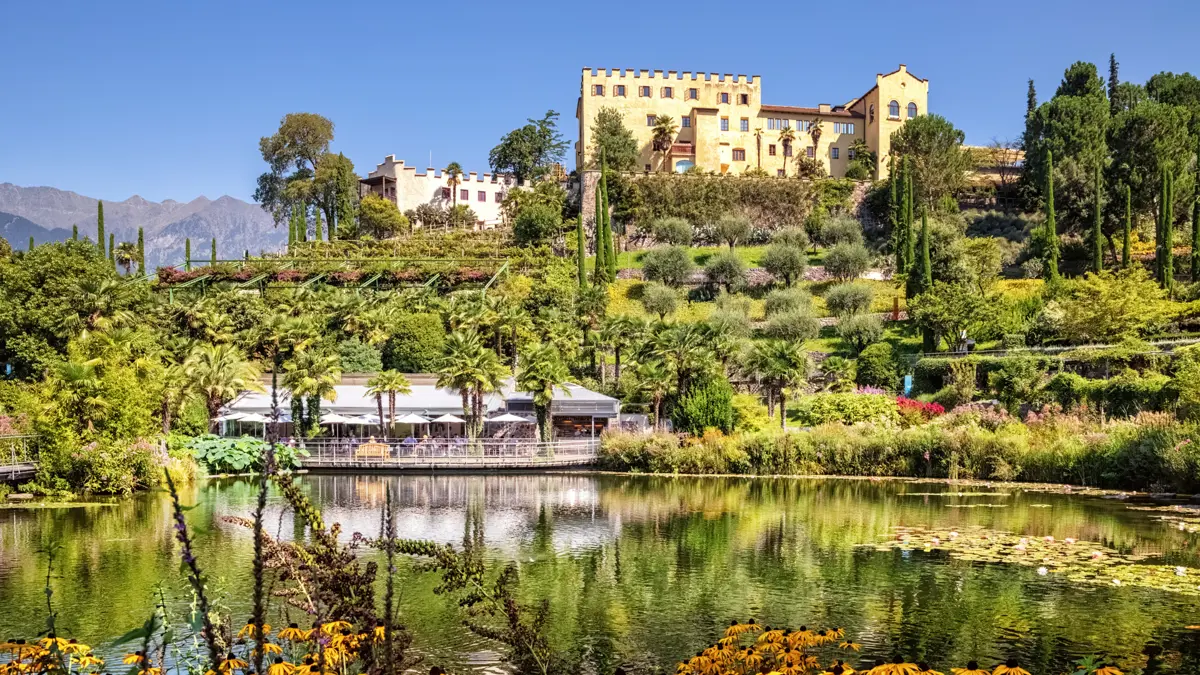
Discover Italy's best sights
These are just some of the best sightseeing places in Italy, perfect for walking holidays filled with history, views and, of course, a few scoops of gelato.
Whether you are wandering through ancient ruins, strolling along colourful coastlines, or soaking up spa-town charm, Italy sightseeing offers something unforgettable at every turn.
See it all, step by step
With our walking holidays, you’re not just ticking off the sights, you’re stepping right into them.
See Italy the way it was meant to be seen.